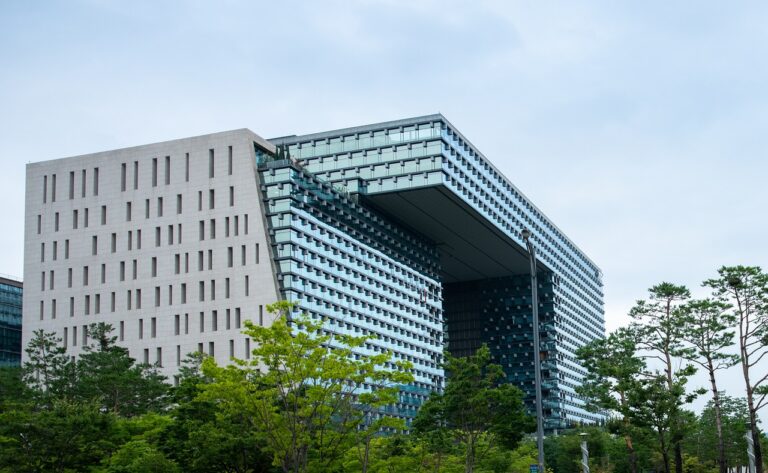The Role of Biotechnology in Enhancing Industrial Processes: 11xplay, Reddy anna book, Goldenexch 7777
11xplay, reddy anna book, goldenexch 7777: Biotechnology has been revolutionizing industrial processes across various sectors. From agriculture to healthcare, biotechnology has been playing a significant role in enhancing efficiency, sustainability, and productivity. In this blog post, we will delve into the role of biotechnology in enhancing industrial processes and how it is shaping the future of industries worldwide.
Introduction to Biotechnology in Industrial Processes
Biotechnology involves the use of living organisms or their systems to develop products and processes that benefit various industries. In the industrial sector, biotechnology has been instrumental in improving processes and developing innovative solutions that were previously unimaginable. By harnessing the power of biological systems, biotechnology has paved the way for a new era of industrial revolution.
Applications of Biotechnology in Industrial Processes
1. Biopharmaceuticals: One of the most well-known applications of biotechnology in industrial processes is the production of biopharmaceuticals. Biotechnology companies are utilizing advanced techniques to develop biologics, such as monoclonal antibodies and recombinant proteins, to treat various diseases effectively.
2. Food and Agriculture: Biotechnology has been instrumental in the agricultural sector, with the development of genetically modified crops that are resistant to pests and diseases. This has led to increased productivity, reduced environmental impact, and improved food security.
3. Biofuels: The production of biofuels from renewable sources, such as algae and biomass, is another area where biotechnology is making a significant impact. Biofuels offer a sustainable alternative to fossil fuels and help reduce greenhouse gas emissions.
4. Waste Management: Biotechnology is being used to develop innovative solutions for waste management, such as bioremediation and bioconversion. These processes help in the efficient breakdown of organic waste and the production of valuable by-products.
5. Industrial Biocatalysis: Enzymes and microorganisms are being used as biocatalysts in various industrial processes, such as the production of chemicals, pharmaceuticals, and biofuels. Biocatalysis offers a more sustainable and cost-effective alternative to traditional chemical catalysts.
6. Environmental Monitoring: Biotechnology is being used for environmental monitoring and pollution control. Bioremediation techniques help in cleaning up contaminated sites, while genetically engineered microorganisms are used to detect pollutants in the environment.
Challenges and Opportunities in Biotechnology
While biotechnology offers numerous benefits for industrial processes, it also comes with its own set of challenges. One of the main challenges is the regulatory framework surrounding biotechnological products and processes. Ensuring safety, efficacy, and ethical considerations is crucial in the development and commercialization of biotechnological innovations.
Another challenge is the public perception of biotechnology, with concerns about genetically modified organisms (GMOs) and their impact on human health and the environment. Education and transparency are key in addressing these concerns and building trust in biotechnological solutions.
Despite these challenges, the opportunities presented by biotechnology in enhancing industrial processes are immense. The potential for developing sustainable and eco-friendly solutions, increasing productivity and efficiency, and creating new markets and revenue streams are driving the adoption of biotechnology across industries.
Future Trends and Developments in Biotechnology
As technology continues to advance, we can expect to see more innovative applications of biotechnology in industrial processes. The convergence of biotechnology with other disciplines, such as artificial intelligence and nanotechnology, will lead to the development of cutting-edge solutions for a wide range of industries.
Advancements in genetic engineering, synthetic biology, and metabolic engineering will further expand the capabilities of biotechnology in industrial processes. From personalized medicine to precision agriculture, the future of biotechnology looks promising and full of possibilities.
FAQs
Q: What are the regulatory challenges associated with biotechnology in industrial processes?
A: Regulatory challenges include ensuring safety, efficacy, and ethical considerations in the development and commercialization of biotechnological products and processes.
Q: How can biotechnology help in waste management?
A: Biotechnology can help in waste management by developing innovative solutions for bioremediation, bioconversion, and the production of valuable by-products from organic waste.
Q: What are the future trends in biotechnology for industrial processes?
A: Future trends include advancements in genetic engineering, synthetic biology, and metabolic engineering, as well as the convergence of biotechnology with other disciplines like artificial intelligence and nanotechnology.
In conclusion, biotechnology is playing a crucial role in enhancing industrial processes and driving innovation across various sectors. With its potential to improve efficiency, sustainability, and productivity, biotechnology is shaping the future of industries worldwide. As technology continues to advance, we can expect to see more groundbreaking applications of biotechnology that will further revolutionize industrial processes and pave the way for a more sustainable future.







